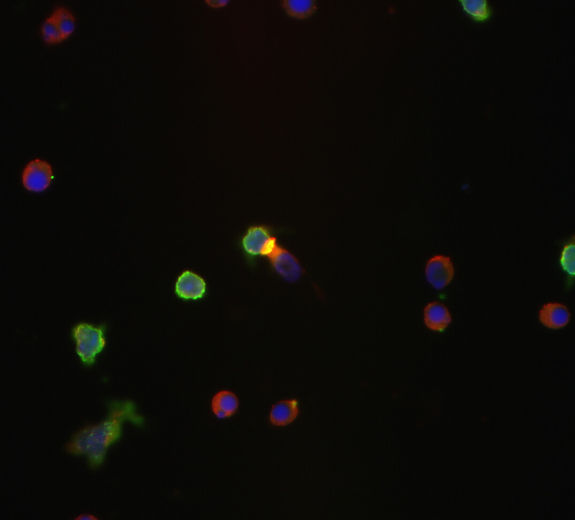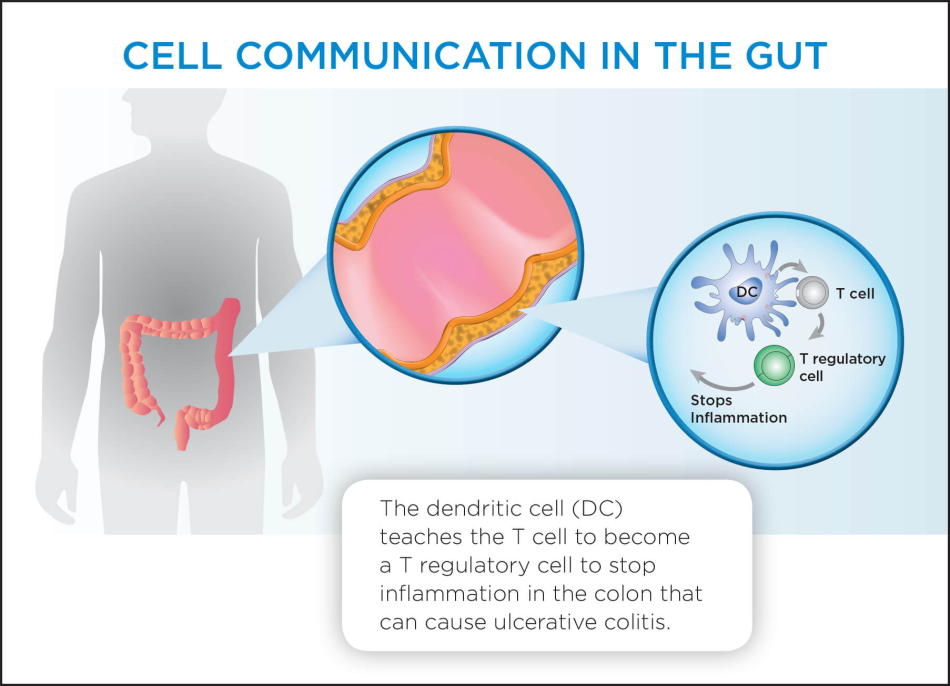
Researching Cell Communication
A critical factor in whether people develop an autoimmune disease is “cell communication.” BRI principal investigator Adam Lacy-Hulbert, PhD, is studying cell communication in the gut.
Two autoimmune diseases, Crohn’s disease and ulcerative colitis (UC), also known as inflammatory bowel disease (IBD), occur in the gut. The body’s immune system mistakenly attacks the intestines, resulting in intestinal inflammation, abdominal pain and bleeding.
“The gut is fascinating because it is filled with bacteria and food that is technically foreign to the body, but they are an integral part of the body,” he says. “Usually the immune system would fight against foreign material, but within the gut it needs to sort out how to respond to a variety of things both good and bad for the body. These include infections, viruses, bacteria, food and medications.”
Dr. Lacy-Hulbert is studying special rare cells, called dendritic cells, which organize communications. They are the “teachers” that tell the “student” immune cells or T cells what to do. “Dendritic cells bring in the T cells and teach them what to respond to and how to respond to it. We research how dendritic cells make the decision to react to foreign materials and how they communicate it to the immune cells. This communication is vital because if the dendritic cells get it wrong and if they tell T cells to attack something that is part of the body, it can cause autoimmune disease.”
Dr. Lacy-Hulbert and his team discovered that a certain gene is essential for dendritic cells to generate a population of T cells and to tell them to become regulatory cells that can control the immune response and avoid autoimmune diseases. Their research has described the complicated way that the dendritic cells instruct the T cells to activate and become T regulatory cells. They also discovered that if they block this process in a model system of the gut, ulcerative colitis develops.
“Our next step would be to test this in human samples,” says Dr. Lacy-Hulbert. “Then we can see if the dendritic cells make the wrong decision, can we reverse it? We are also studying the bigger picture of communications by studying the messages that are sent from the epithelial cells that form the barrier between the gut and the body. They are constantly sending messages that interact with other cells in the gut. We need to understand them better as well.”

Immuno-what? Hear the latest from BRI
Keep up to date on our latest research, new clinical trials and exciting publications.


